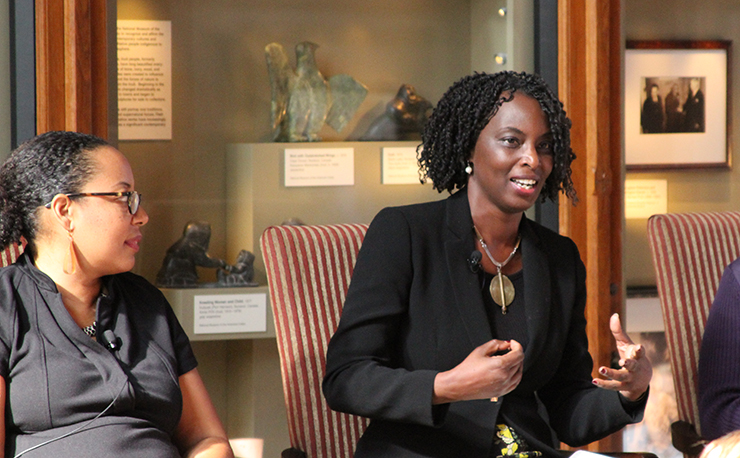Features
Fundamentals of Effective Mentorship [The Mentoring Manual]

Mentors are ladders. Think of it this way: When you climb a mountain, you’re thrilled to get to the top — but then quickly look to the next peak and resolve to reach that summit. A mentor helps us scale those upcoming peaks.
A mentor helps us accelerate our growth by showing us a clearer path with fewer distractions and obstacles. Mentoring is a supportive, one on one relationship between an accomplished individual and an aspiring individual to facilitate the aspirant’s growth and development. A mentor is a trusted counselor or guide, an advisor committed to the growth of another individual.
Mentoring has priceless benefits for both the mentor and the mentee. It is a relatively small investment that can yield huge returns.
Benefits to the Mentor:
- Personal relationship with a future business leader
- Personal gratification
- Opportunity to reflect and codify life’s experiences
- Links/networks to the younger generation and other aspiring/emerging entrepreneurs
Benefits to the Mentee:
- First hand interactions with a successful entrepreneur, his/her employees and other stakeholders
- Personal relationship with an experienced entrepreneur
- Opportunity to develop new insights and knowledge
- Links/networks within a particular industry
BEST GUIDELINES FOR THE MENTEE DURING MENTORSHIP
- Timeliness & Proper Communication Mentors provide mentorship support on a volunteer basis and we have a sense of deep respect for their time. They are passionate and eager to provide mentorship support for promising aspiring entrepreneurs like you and lateness of any kind to an agreed meeting without a proper advance notice is very unacceptable.
- Proof of Commitment to your Business Goals Do all you can to maximize your business growth potential through a mentoring relationship. If low commitment is perceived from your end, it can hinder optimum results of your mentoring experience. To make the most of mentorship, it is advised that you place premium on your commitment to your goals and your relationship with your mentor.
- Mentorship is not Apprenticeship Please note that the responsibility is completely on you to make your decisions, not relying on your mentor to make your decisions for you. Your mentor is there to guide you as you take steps to achieve your goals and grow your business to the next level. Always remember that the ultimate goal of business mentoring is to help you develop your own unique entrepreneurial and business leadership strengths.
BEST GUIDELINES FOR THE MENTOR DURING MENTORSHIP
To serve as an effective mentor, the following qualities need to be considered…
- High Sense of Moral Integrity. A high sense of moral integrity is necessary for establishing and maintaining trust and open lines of communication between you and your mentee. The mentee must have faith that their mentor will not engage in unscrupulous behavior that could jeopardize their well-being or success.
- Excellent Listening Skills. Active listening involves focusing on the person who is speaking, without distractions. It means giving the person your undivided attention and avoiding interruptions. Being conscious of body language and non-verbal communication is important as well in order to be attuned to what your mentee is saying.
- A Positive Attitude. The ability to provide encouragement, support, and a positive attitude contributes greatly to building trust in the relationship. A positive attitude conveys your belief in your mentee and their ability to manifest their dreams.
- Sensitivity to the Needs of Your Mentee. Active listening ensures that you are attuned to the needs of your mentee. Being open to the individual’s needs and concerns is a vital component for their personal growth and development.
- Respect for and Acceptance of the Person. Having a deep respect and acceptance for your mentee regardless of his/her gender, ethnic background, or religion is essential for trust, meaningful dialogue, and sharing.
- Commitment. Commitment to spending time with your mentee in order to fulfill the objectives of this mentoring programme is important for developing a strong relationship and ensuring your mentee’s personal, educational, and entrepreneurial development.
- Willingness to be Available to your Mentee between Meetings. Being open to telephone calls, e-mails, or written communication from your mentee when he/she needs assistance helps to foster the development of a strong and meaningful relationship.
- Trust. Successful relationships are built upon trust. During the course of your relationship with your mentee, your mentee might choose to disclose to you his business plan or key elements of his business strategy. By choosing to begin a mentorship relationship, you should not disclose this information to others without the stated consent of your mentee.
Mentoring Do’s and Don’ts
The Dos:
Be committed to the objective of the mentorship
Guide and coach your mentee
Provide solicited advice to your mentee
Listen to and remember the questions and comments your mentee may make
Introduce your mentee to your place of work
Be responsible and professional in your relationship by keeping appointments that you and your mentee have set
Monitor and track the progress of your mentee over the 12-month period
Get to know your mentee on a personal level
Consider your relationship a learning experience for both your mentee and yourself!
The Don’t:
Be condescending towards your mentee
Give your mentee the impression that he/she is not wanted
Lecture or preach to your mentee
Treat your mentee as an employee or attempt to formally employ them
Steal the ideas of your mentee
Give poor advice to your mentee as a means of thwarting future competition
Make promises you cannot or will not fulfill






